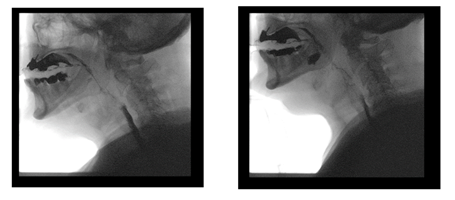Widespread Ignorance on how to Adjust the Miami-J® Spinal Collar When Eating and Drinking Leads to Increased Aspiration Risk in Older People
Article Information
Murray AJ Hudson1*, Jasmine Ehsanullah1, Kanapath Oungpasuk2, Alice O’Regan2, Nicola Macpherson3, Aisha O’Gilvie3, Cerys Morgan1, George Peck1, Louis J Koizia1, Michael B Fertleman1
1Cutrale Perioperative and Ageing Group, Department of Bioengineering, Imperial College London, White City Campus Sir Michael Uren Hub, 86 Wood Lane, London W12 0BZ, UK
2Imperial College Healthcare NHS Trust, Major Trauma Unit, St Mary’s Hospital, London, UK
3HCA Healthcare UK, The Wellington Hospital, Wellington Place, London, UK
*Corresponding Author: Murray AJ Hudson, Cutrale Perioperative and Ageing Group, Department of Bioengineering, Imperial College London, White City Campus Sir Michael Uren Hub, 86 Wood Lane, London W12 0BZ, UK.
Received: 23 February 2022; Accepted: 04 March 2022; Published: 18 March 2022
Citation: Murray AJ Hudson, Jasmine Ehsanullah, Kanapath Oungpasuk, Alice O’Regan, Nicola Macpherson, Aisha O’Gilvie, Cerys Morgan, George Peck, Louis J Koizia, Michael B Fertleman. Widespread Ignorance on how to Adjust the Miami-J® Spinal Collar When Eating and Drinking Leads to Increased Aspiration Risk in Older People. Archives of Clinical and Medical Case Reports 6 (2022): 209-212.
View / Download Pdf Share at FacebookAbstract
Wearing a spinal collar can cause dysphagia [1, 2]. The limited evidence on swallow function when wearing a spinal collar is exclusively in younger volunteers [3, 4]. The manufacturer of the Miami-J® collar, Ossur® trains users to remove the sternal pad when a patient is eating or drinking. An 83-year-old male demonstrated deterioration in swallow function on video fluoroscopy when wearing the Miami-J collar with sternal pad in situ in comparison to wearing the collar with sternal pad removed, highlighting the importance of its removal. We identified poor knowledge across the MDT about removing the pad during oral intake. This report seeks to alert all healthcare professionals of the importance of adjusting the sternal pad to avoid the significant risk of aspiration in the older person.
Keywords
Spinal collar; Fluoroscopy; Miami-J Spinal Collar
Article Details
1. Background
As part of a research study we performed video fluoroscopy on healthy individuals (aged 21-105 years) with and without a Miami- J® spinal collar. The Miami-J collar, manufactured by Ossur®, is commonly used in the management of cervical spine injuries worldwide. It is recognised that wearing any spinal collar may cause dysphagia [1, 2]. The little evidence that exists on swallow function whilst wearing a collar is exclusively in younger volunteers. [3,4] This case report draws attention to the concerns surrounding swallow dysfunction in the older person wearing a spinal collar and the alarmingly poor knowledge across the MDT (including some of the articles authors) of how to specifically adjust the Miami-J collar before a patient eats or drinks. Whilst formal training should be undertaken to safely fit any spinal collar, it is critical that all members of the MDT are broadly aware of its function. As part of training in use of the Miami-J collar, Ossur demonstrates a small adjustment that can be made after the collar has been fitted when a patient is eating or drinking, namely removal of the sternal pad. This adjustment can reduce the risk of swallow dysfunction (coughing, choking or aspiration).
2. Case Report
An 83-year-old healthy male and first participant in our study consented to three separate swallow assessments:
- Baseline Video Fluoroscopy (VF)
- VF wearing a Miami-J collar with sternal pad in situ
- Repeat VF wearing the collar with sternal pad removed
The volunteer demonstrated deterioration in swallow function when wearing the spinal collar with sternal pad in situ in comparison to wearing the collar with sternal pad removed. There was a particular deterioration in the oral phase of swallow function, with the most marked decline seen in increased oral residue (Figure 1).
Bolus preparation/mastication was impaired when the spinal collar was worn in comparison to baseline video fluoroscopy. Although the impairment of swallow function with the sternal pad in situ did not cause overt aspiration in this volunteer, we felt that the impairment could have the potential to increase overall aspiration risk. This is an important finding when we consider translation to the real-world, in the older person who suffers spinal injury and is managed for a prolonged period in a spinal collar. The adjustment of the collar was new information for some of the authors within the study; therefore we suspected that knowledge of removing the sternal pad may be lacking amongst the MDT. We subsequently performed semi-structured interviews of 109 members of the MDT across the acute trauma, orthopaedic and spinal injury wards at a tertiary major trauma centre. We found that only 5 correctly identified the sternal pad and importance of removing it during eating and drinking. We subsequently performed focused teaching to improve awareness and understanding amongst the MDT. This report seeks to alert colleagues to the sternal pad adjustment on the Miami-J spinal collar. Unsafe use of the collar may be associated with a greater aspiration risk and has the potential to cause significant morbidity and mortality in older people.
Patient Consent
Written informed consent for publication of their clinical details and clinical images was obtained from the patient.
Conflicts of Interest
The authors declare no conflicts of interest.
Funding
Our work received no specific grant from any funding agency in the public, commercial, or not-for-profit sectors.
References
- Houghton DJ, Curley JW. Dysphagia caused by a hard cervical collar. Br J Neurosurg 10 (1996): 501-502.
- Bradley JF 3rd, Jones MA, Farmer EA, et al. Swallowing dysfunction in trauma patients with cervical spine fractures treated with halo-vest fixation. J Trauma 70 (2011): 46-48.
- Stambolis V, Brady S, Klos D, et al. The effects of cervical bracing upon swallowing in young, normal, healthy volunteers. DysphagiaWinter 18 (2003): 39-45.
- Mekata K, Takigawa T, Matsubayashi J, et al. The Effect of the Cervical Orthosis on Swallowing Physiology and Cervical Spine Motion During Swallowing. Dysphagia 31 (2016): 74-83.

